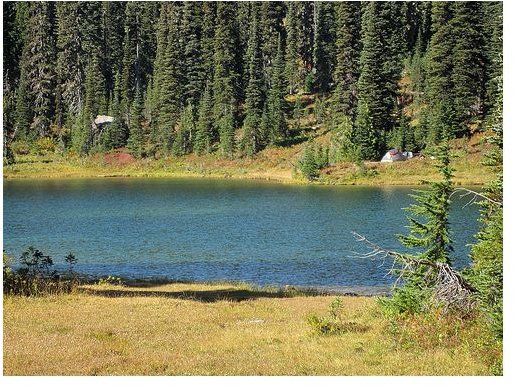Eco-Friendly Camping: Camping with Minimal Waste and Respecting the Environment
Green Environment, Green Experience
Camping has many benefits. It is a way to appreciate the outdoors. It can be a bonding experience with friends and family, and a wonderful way to learn about nature. It is important to practice eco-friendly camping while using the natural environment as a temporary home, in order to maintain the beauty and sanctity for other people, but also for the sake of the entire ecosphere.
With respect and awareness, camping can be a positive activity for people, without harming the environment. Unfortunately, there are many times when campers, in some way, pollute or affect the ecosystem, often unintentionally. Through taking responsibility for our actions, and being aware of the impact of our presence, an environmentally-friendly outdoor experience is possible.
Waste
The most basic rule for eco-friendly camping is to dispose of waste. Many people bring packaged food to eat, disposable cooking materials, and other products. Be sure to clear an area of all garbage and refuse. Bring garbage bags to throw away trash, and then bring the trash back to a residential area to properly dispose of. It is not alright to burn trash, as this will pollute the air. It is not alright to dump leftover food or liquids into the earth. Even human waste, be sure to dig a small hole, and cover up waste if there are no toilet facilities.
Campfires
Campfires are a central part of camping. They may be necessary for light and warmth, and for cooking food, but they are also enjoyable. Be responsible when building a fire. Be careful clearing an area, and only do so if necessary. Many campsites have a designated area or there may be a place where others have previously built a fire. Use wood and sticks that are already lying on the ground, instead of cutting branches from live trees. Also, it is important to put out fires after use; never leave burning embers unattended.
Washing
If there are no shower or washing facilities, be careful with cleaning materials. If using a stream, or lake, do not allow toothpaste, soap, shampoo, or detergents to enter the water. While spending time in nature, you may have to make basic lifestyle changes. Bringing the chemicals we use on a daily basis at home, is not fair to a natural ecosystem. If possible, simply wash with water, and keep refuse to a minimum. Bring a jar to dispose of toothpaste and mouthwash.
Respecting the Ecosystem
Eco-friendly camping is the basic experience all campers should have. There is nothing wrong with spending time in nature, connecting, and learning. There is something wrong with taking advantage of a pristine environment, while disrespecting the land. Do everything possible to preserve what we all want to enjoy. Follow these simple guidlines for environmentally-friendly camping.
Resources
Peterson, Josh. “Eco-Friendly Camping Trip.” (Planet Green) <planetgreen.discovery.com/travel-outdoors/eco-camping>.
“Green Camping Tips.” (All Campground) <allcampgrounds.com/articles/tips/green-camping-tips>
Photo Credit
photo by: Cruiznbye (CC/flickr) <flickr.com/photos/33346716@N03/3956549650/>.
This post is part of the series: Eco Camping
Learn how to value and respect nature by practicing eco camping. Children and adults, and the earth, will benefit from an environmental mind-set, when approaching the great outdoors.
